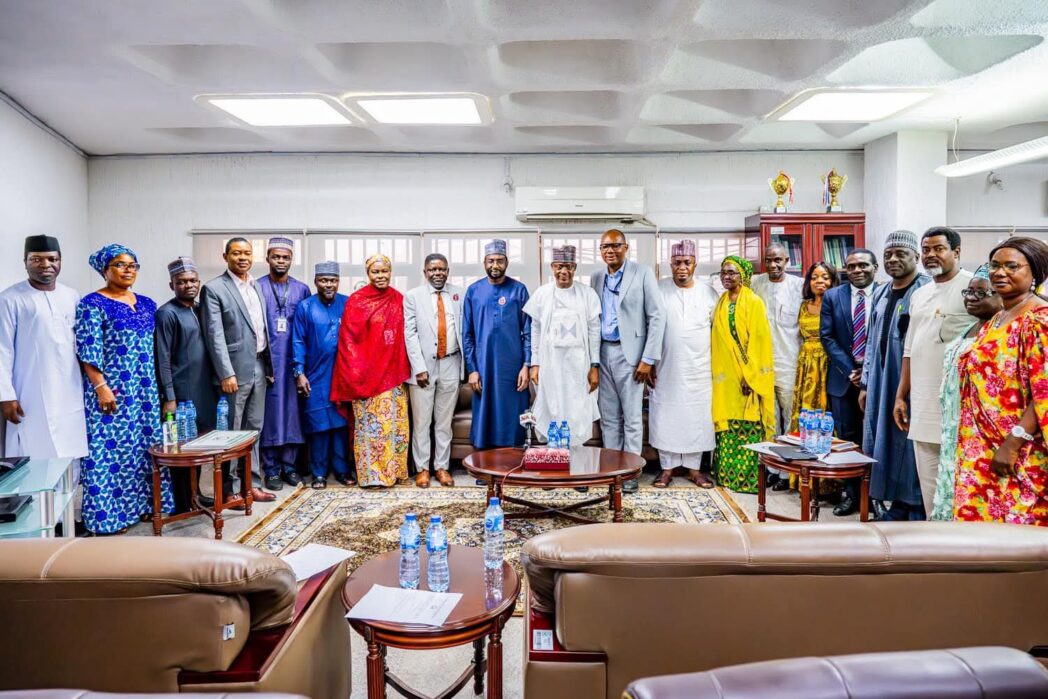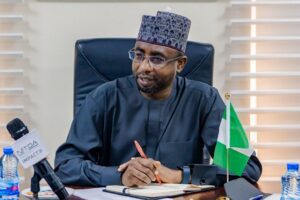


NITDA, NUC partner to revolutionize digital literacy in Nigerian universities
By Blessing Emmanuel
The National Information Technology Development Agency (NITDA) has joined forces with the National Universities Commission (NUC) to make digital literacy a core part of education in Nigerian universities. This groundbreaking initiative, announced by NITDA’s Director General, Kashifu Inuwa Abdullahi, CCIE, during a courtesy visit to the NUC headquarters in Abuja, aims to prepare Nigerian students for the rapidly evolving digital economy.
The partnership builds on the success of the Digital Literacy for All (DL4ALL) pilot program at Nasarawa State University, Keffi. This program introduced digital literacy as a credit-earning course, with support from global tech giant Cisco. NITDA now plans to replicate this success nationwide, ensuring that digital skills become as essential in university curriculums as English and Mathematics.
“We aim to achieve 70% digital literacy by 2027 and 95% by 2030,” Abdullahi revealed. “Embedding digital skills as a general course in universities is a sustainable solution to achieve this target. With NUC’s support, we can empower students to navigate and contribute to the digital economy effectively.”
Abdullahi emphasized that equipping students with technological expertise is critical for achieving Nigeria’s digital economy goals, as outlined in NITDA’s Strategic Roadmap and Action Plan (SRAP 2.0). One of the roadmap’s key pillars focuses on fostering digital literacy and cultivating talent.
“Universities are critical stakeholders in this journey,” he said. “Research is the foundation of any robust economy. Together with the NUC, we can build a technology research ecosystem that addresses national challenges.”
In line with the Nigerian Start-Up Act, the DG also stressed the importance of aligning university curricula with industry demands to produce graduates who are job creators rather than job seekers.
Chris J. Maiyaki, the Executive Secretary of the NUC, expressed strong support for the initiative, describing digital literacy as indispensable in the modern era.
“The rapidity of change in the digital revolution makes it imperative for Nigerian universities to embrace this transformation,” Maiyaki stated. “You can hardly function today without significant technological skills. This partnership is crucial for driving digital transformation within our university system.”
While acknowledging existing challenges in digital infrastructure, Maiyaki expressed optimism about the partnership’s potential to enrich Nigeria’s higher education sector.
“Digital platforms can revolutionize our research ecosystem, and the integration of artificial intelligence holds immense potential for higher education. This initiative presents a unique opportunity for Nigerian universities to lead in the global digital landscape,” he added.
Both leaders underscored the importance of collaboration, highlighting how this partnership would bridge the digital divide and position Nigeria as a global talent hub.
“No one succeeds in isolation,” Abdullahi concluded. “Together, we can prepare our citizens for the future and create a digitally empowered nation.”
This landmark collaboration signals a transformative shift in Nigeria’s educational landscape, with far-reaching implications for the nation’s role in the global digital economy.



